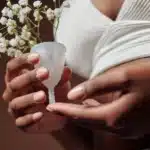UTIs after Menopause
Contents
UTIs after menopause become more common, around 20% of women experience it after menopause and 11% of women before menopause.
After menopause not only UTI is the issue, but other health issues also arise like the risk of fracture due to low levels of estrogen.
Urinary tract infection mostly affects women due to the shorter path of the urethra (allowing bacteria to reach faster to the bladder)
The most common reason for UTIs in all individuals is poor hygiene, so make sure to maintain your overall hygiene.
Menopause is a natural phenomenon, where periods are completely stopped, it occurs between about 45 to 55 years of age in women.
In some women, it occurs early age, if menopause happens before the age of 40, then is considered perimenopause (1)
If you notice any discomfort after menopause, then you should consult to doctor, it may be a warning sign of health.
After menopause, women should more take care of their health due to low levels of estrogen (main hormone in women)

UTI Risk on Women
As we know women are more at risk of UTI due to the short path of the urethra, and not maintaining hygiene.
However, some women more risk of it which include:
- Pregnant women
- Women who do not maintain intimate hygiene
- During and after menopause women
- Intercourse can increase the risk of UTIs
- Diabetes
- urinary incontinence (2)
- old age
- certain medical conditions
- Women who use douching frequently
However, in some women, it frequently occurs, but why does this happen? there are several reasons for this such as:
- Decrease the level of estrogen
- medicines overdose or may be a side effect
- change in vagina bacteria
- urinary incontinence
- underlying medical conditions like diabetes, thyroid, etc
Causes of UTI after Menopause
Here are other reasons why UTIs occur after menopause:
Decrease Estrogen Level: Estrogen (a main hormone in females) is responsible for periods, mood, good skin, and hair health, and is vital during pregnancy.
After menopause estrogen level decreases, which leads the urinary tract to become thin, and less elastic, resulting in more risk of UTI.
Change in Vagina Bacteria: Before menopause lactobacillus bacteria (live in the vagina) keep the overall vagina atmosphere healthy.
But after menopause, the variety of bacteria increases, which disturbs the overall bacteria level, and leads to grow harmful bacteria (3).
Urinary Incontinence: where you can’t hold your pee, which occurs due to several reasons like laughter, cough, nerve damage, and medical conditions.
But you might wonder how can UTI relate to urinary incontinence.
Yes, they both are related, UTIs disturb the bladder, resulting in Urinary incontinence, which also occurs pre- and postmenopause.
Old age: As you get older vaginal tissue also becomes thin, has less elasticity, and has weak immunity, resulting increase the risk of UTI.
In old age, less estrogen is one of the other reasons for infection growth (4)
Medical condition: After menopause, women are prone to illness because of decreased levels of estrogen (which prevent several illnesses).
Diabetes, thyroid, and other several medical conditions make UTI worse.
Signs and Symptoms
Here are common signs and symptoms of UTI after menopause include:
- Buring during pee
- Change in colour pee like red, green, etc
- fever
- Cloudy urine
- unpleasant odor
- urge to urinate
- pain on the kidney side, lower back pain and abdominal
In addition, during menopause, bleeding continues for a long time, so it is not a sign of menopause, In this case, talk to a doctor.
Learn – Successful Ways to Prevent UTI Pre and Post Intercourse
Way to Prevent UTIs After Menopause
There are several ways to prevent UTIs after menopause including:
Stay hydrated
Consuming water throughout the day can flush out the bacteria from the urinary tract.
So make sure to consume water or other liquids like coconut water (good after a workout, and bring back lost electrolytes)
Avoid tight clothes
Tight underwear makes it difficult for the genitals to breathe, which indirectly affects sperm production and quality.
Without proper air circulation sweat traps inside the underwear, which increases the infection risk (5)
Don’t hold Urinate
Hold urinating leads to various issues so don’t hold urinating for a long time, otherwise, it increases the risk of:
- UTI (urinary tract infection)
- weaken your bladder holding strength
- infection with pain
- In rare cases, holding urine can damage their kidney
If you notice any penis and bladder issues, then you should consult the doctor, it may become a serious issue in future (6)
Estrogen Therapy
Estrogen therapy can reduce the risk of UTIs after menopause, and support the women’s intimate health (7).
Consult your doctor before consuming estrogen supplements, creams and therapy, the recommended dose helps in it.
Other Ways to Prevent UTIs
Here are how you can prevent UTIs (for all individuals) include:
- Use the wipe from-to-back method
- Avoid harsh soap and scent in a private area
- Consume probiotics and cranberry: Consume more probiotics food like yogurt, cheese, milk, etc, moreover cranberry juice (help prevent UTI)
- get physically active
- Empty your bladder from time to time
- Urinary before and after intercourse is vital
- Use lubrication during intercourse (because after menopause body’s natural lubrication decreases)
- Wear clean and breathable underwear
- seek medical help
Women should maintain private hygiene, due to the shorter path of the urethra, which reduces the risk of UTI and STI.
Treatment for UTIs after Menopause
After menopause and during pregnancy women should take care of their diet, activity, and their lifestyle.
If you notice any pain and colour change in urine then you should consult the doctor, for proper diagnosis, and treatment help in it.
UTIs are easily treated with prescribed antibiotics medications.
Antibiotics depend on how severe the case is, if your UTI reaches in kidney, then the doctor may advise a strong dose of antibiotics.
Healthytalk8 does not recommend any medication, because everyone has different health.
Down Line
UTIs after menopause can be easily treated with antibiotics.
Symptoms of UTIs after menopause are – burning during peeing, change in urine colour, kidney side pain, cloudy urine, etc
UTI is a common infection type that affects all individuals but mostly affects women.



